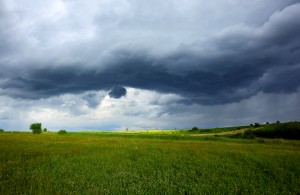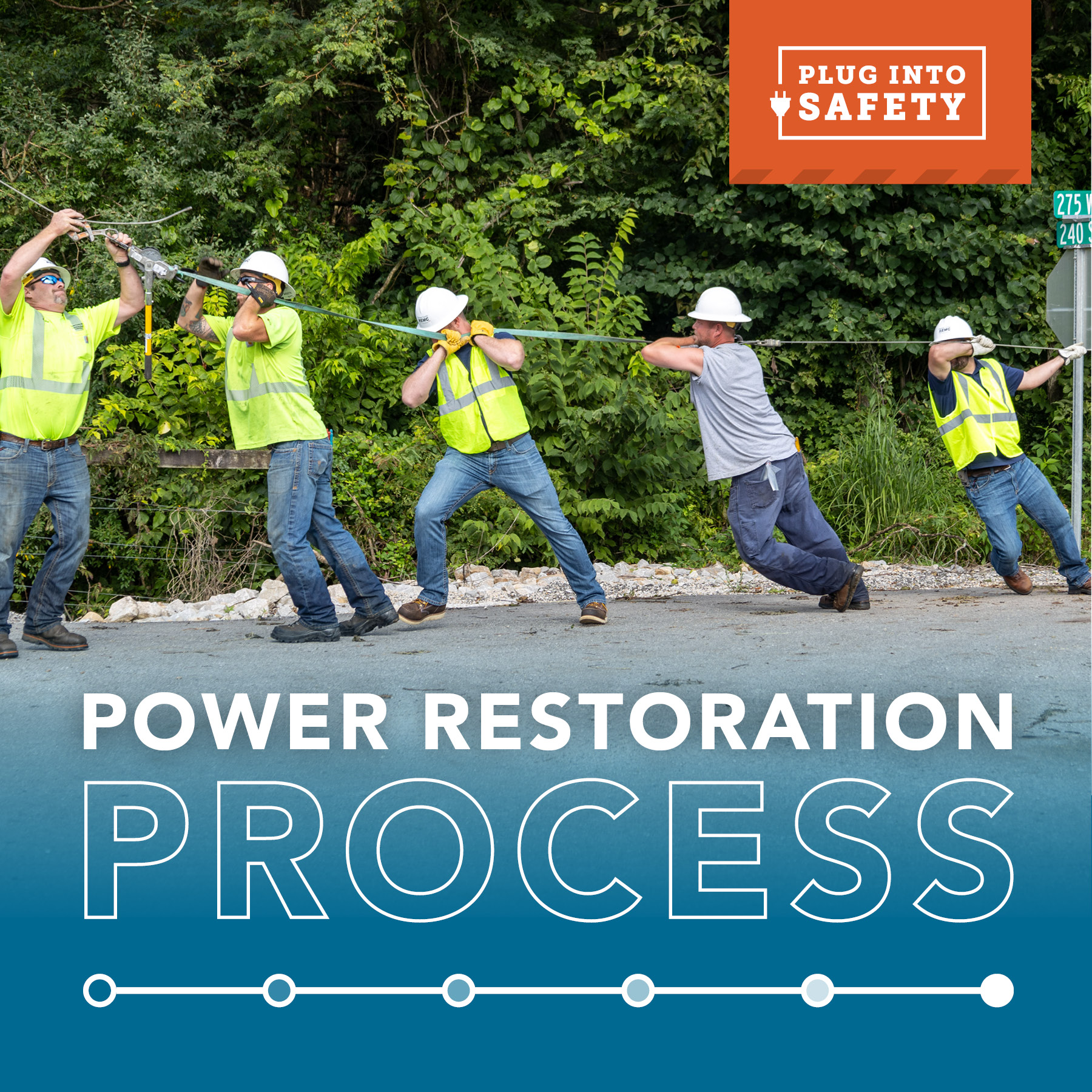Storms in Indiana can be unpredictable, and while many residents might think the dangers have receded once they pass, those at Indiana’s electric cooperatives know dangers can occur during the storm recovery period. Keeping your distance
from downed power lines and knowing what to do if you see one are the first steps to safely recover from a storm.
Assume all downed power lines are live. If you see a downed power line, which could be making contact with tree limbs, vehicles and puddles, keep a distance of 35 feet. If anyone were to come in contact with one, the consequences could be deadly.
“Large overhead power lines can carry more than 700,000 volts of electricity,” said Tom VanParis, CEO of Indiana Electric Cooperatives. “Fatalities can occur when someone comes in contact with a live wire of only a couple hundred volts.”
Do not try to rescue someone who has already made contact with a power line. You cannot help if you also become a victim. Immediately call 911 for assistance, and then contact your local electric utility to turn off the power.
Never attempt to move a downed power line or anything else in contact with it using another object. Non-conductive materials like wood or cloth can conduct electricity even if they’re only slightly wet.
Indiana Electric Cooperatives stresses the importance of staying safe around electricity and downed power lines after a storm passes. It could save a life.
More storm clean-up safety tips
- Wear proper safety gear. As you are cleaning up, make sure you are wearing proper protection to prevent injury. Work gloves, safety glasses, heavy-duty work shirt with long sleeves, work pants and steel-toe work boots are a good idea if you are clearing large amounts of broken, splintered or sharp debris.
- Use flashlights, not candles. When checking for damage to a home, never use matches, candles, lighters or kerosene lanterns as a light source. Igniting a flame while near damaged gas lines can cause an explosion.
- Stay away from damaged buildings or structures. If a building has been subjected to rushing flood waters or submerged underwater, it may not be structurally safe. It’s best to stay away from these types of structures until professionals can assess the extent of the damage.
- Never operate gas-powered equipment indoors. Gas engines emit carbon monoxide — an odorless, colorless, and poisonous gas you should never breathe.
Indiana Electric Cooperatives, located in Indianapolis, represents 38 electric distribution cooperatives that serve 1.3 million Hoosiers in 89 of the state’s 92 counties. The cooperatives are collectively the second largest electricity provider in Indiana. For more information about the association, visit IndianaEC.org.






